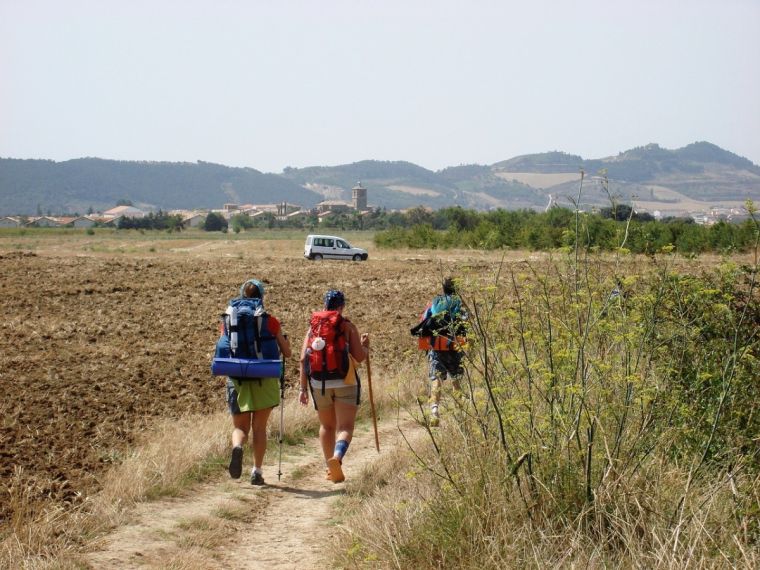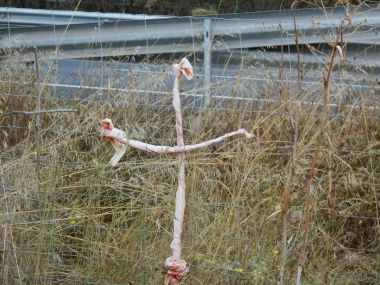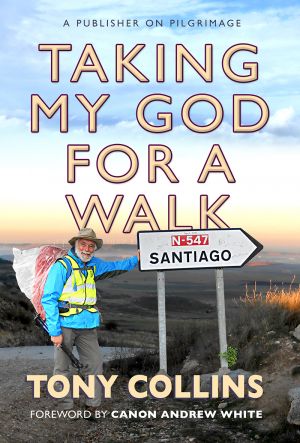Walking the Camino: What an evangelical Christian learned on an ancient pilgrim way
It's not exactly common, to go on pilgrimage. Muslims do it, and some Christians too – think of Walsingham. And there's Chaucer's Canterbury Tales. But it's not very English, and certainly not evangelical.
I've been an evangelical Christian most of my adult life, and publisher of many thousands of Christian books (I founded Monarch Books, now part of Lion Hudson, in 1988). I have charismatic sympathies. I have sung worship songs without number.

At Spring Harvest I ran into Douglas, a friend from Tunbridge Wells. Something seemed different. He exuded a new confidence, a willingness to seize the initiative. I quizzed him over a beer. "I walked the Camino," he offered, as if that explained everything. "Best thing I ever did."
The Camino de Santiago, or Way of St James, leads to Santiago de Compostela in north-west Spain. Celebrated in Martin Sheen's 2010 film The Way, the primary route runs from the French border: from the traditional starting point of St Jean Pied-de-Port to Santiago is 490 miles, or rather more than the distance between Hastings, my home town, and Edinburgh.
Pilgrims have flocked to Santiago since the 9th century: during the grand heyday of pilgrimage – roughly, the 11th to 14th centuries – hundreds of thousands travelled each year. Europe's kings and queens were among those wishing to do penance, to seek healing, to contact the divine, to receive blessing. In recent times the Camino has become popular once more, over 200,000 walking some portion each year. Very few are Brits.

A sabbatical was long overdue. Over the years I had taken many risks in business, some of which had paid off: patchily successful, I had surrounded myself with comfort, position, function, a degree of wealth. Like cholesterol, comfort stifles the spirit. It was time to jump overboard, and the Camino seemed ideal. I don't speak Spanish. I'm reasonably fit, but also reasonably antique. You can't book ahead. There is a network of hostels but they don't accept reservations, so you set off each day not knowing where, or whether, there might be a bed. Critically, my Christian formation had not prepared me for solitude.
And so, one bright morning in late September, I laced up my boots, settled my pack, unshipped my brand new, shiny blue walking poles, and started to hike over the Pyrenees.
The first day's horrific climb nearly ended the enterprise. That night, and for days afterwards, I would arrive at a likely hostel gasping, swaying and drenched in sweat. Gradually I grew stronger: by the time I reached Galicia, several weeks later, I would be leaping blithely from rock to tussock. When I made it to Santiago I was as fit as I have been in decades.
I reflected later that I had been on three journeys.
The simplest was the outward journey. Spain is a scant few hundred miles from Britain, but it's frequently alien – notoriously in its treatment of bulls – and, to my surprise, deserted: I came across village after village largely drained of inhabitants, the houses tumbling, thatch rotting. Spain is a sparsely-populated archipelago, islands of different nations and languages: one Catalonian I walked with described it as a badly-made cake.
I also walked through history. Eleven hundred years of pilgrimage leave their mark: roads, towns and bridges all owe their origin to the Camino. Thousands have died en route: cemeteries, shrines (some very recent) and numberless unmarked graves dot the Way. Ruined buildings abound. Here for centuries stood a hospital, there a monastery welcomed weary travellers. To the Romans Spain was the breadbasket of Empire, and in places Roman infrastructure still lies beneath the pilgrim's feet.
But the most arduous journey by far was inward. Although I made some good friends on the Way – some French pilgrims, the Wine Sisters from California, a pair of US Marines – I elected as a rule to walk alone, and the solitude and once you reach the Meseta (central tableland of Spain) the acute boredom drove my thoughts deep.

I had gone seeking sources of reverence. My spirituality has been formed by Christian books, exuberant worship, and endless activity: a crammed diary, but my soul felt undernourished. I had set out in the hope that if the Almighty wished to speak to me, I would be sufficiently attentive to listen. The many wayside crosses penetrated my defences, but what really struck home was the terrifying turbulence of my own conscience. In the early weeks I was plagued by nightmares, and as I walked the many deficiencies and betrayals of previous decades queued up to accuse me. It was not until a phrase from Adrian Plass popped into my mind – "God is nice, and He likes me" – that I gained some measure of peace.
This was a stage, important but passing. What has remained from my pilgrimage is that my self-awareness has changed. Career, possessions, status all seem of less moment. Silence no longer scares me. The memory of the distant horizon brings peace, consolation, a goal. The road is forever my friend. My boots stand waiting.
Tony Collins is an editor with Lion Hudson plc, and author of the recently-released Taking My God for a Walk (Monarch, £8.99).











